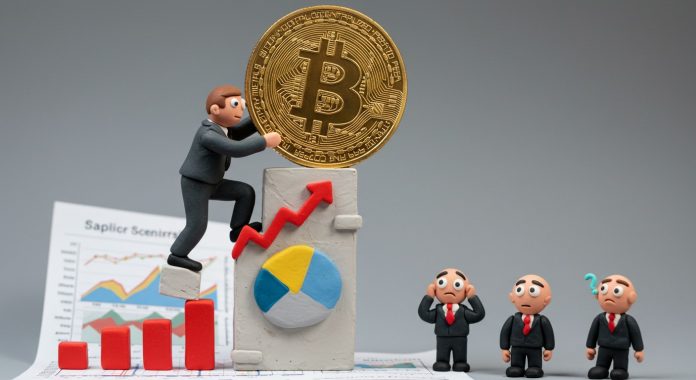
A growing number of Korean firms, including publicly listed companies with weak fundamentals, are jumping on the Bitcoin bandwagon by publicly disclosing their crypto holdings in a wave of “We bought it too” marketing. This trend is fueling concerns of market overheating as these disclosures are often followed by sharp stock price rallies.
BitMax, for example, saw its stock price surge more than 485% year-to-date after revealing its Bitcoin purchase. SGA recorded four consecutive days of hitting the daily price ceiling. Other companies such as Bridge Biotherapeutics and Nexxus have also enjoyed similar investor attention after announcing crypto-related news.
However, the financial performance of these companies tells a different story. Bridge Biotherapeutics posted only 900,000 won in operating revenue during Q1, with a net loss of 4.9 billion won and accumulated deficits exceeding 150 billion won. BitMax also reported a net loss of 27 billion won last year and remains in the red for Q1 this year, with deficits totaling over 88 billion won.
Inspired by the strategy of U.S.-based MicroStrategy—which adopted Bitcoin as a core treasury asset and now boasts a market cap exceeding $100 billion—some Korean firms are mimicking this model. While some hail this as a “Korean version of the MicroStrategy strategy,” others question its long-term sustainability.
Industry experts warn that this behavior artificially drives up demand and prices, creating the risk of speculative bubbles. Christophe Roehrig of digital asset manager TOBAM noted, “These corporate buy-ins are mechanically fueling demand, which can trigger price inflation and ultimately impose risks on investors.”
Korea’s financial authorities are closely monitoring the situation. While they’ve taken a hands-off approach so far, officials have hinted at regulatory action, particularly against listed companies that acquire Bitcoin using external capital. Tighter disclosure rules and restrictions on crypto-themed stocks could follow.
As Bitcoin-themed stock rallies increasingly diverge from companies’ real-world fundamentals, concerns are mounting over the erosion of corporate trust and market stability. Investors are urged to proceed with caution in what appears to be a hype-driven market phase.



![[November]Uptober No More](https://coinhubkorea.com/wp-content/uploads/2025/10/Whisk_d78880efb01a730907f4be201effefe1dr-1-100x70.jpeg)


